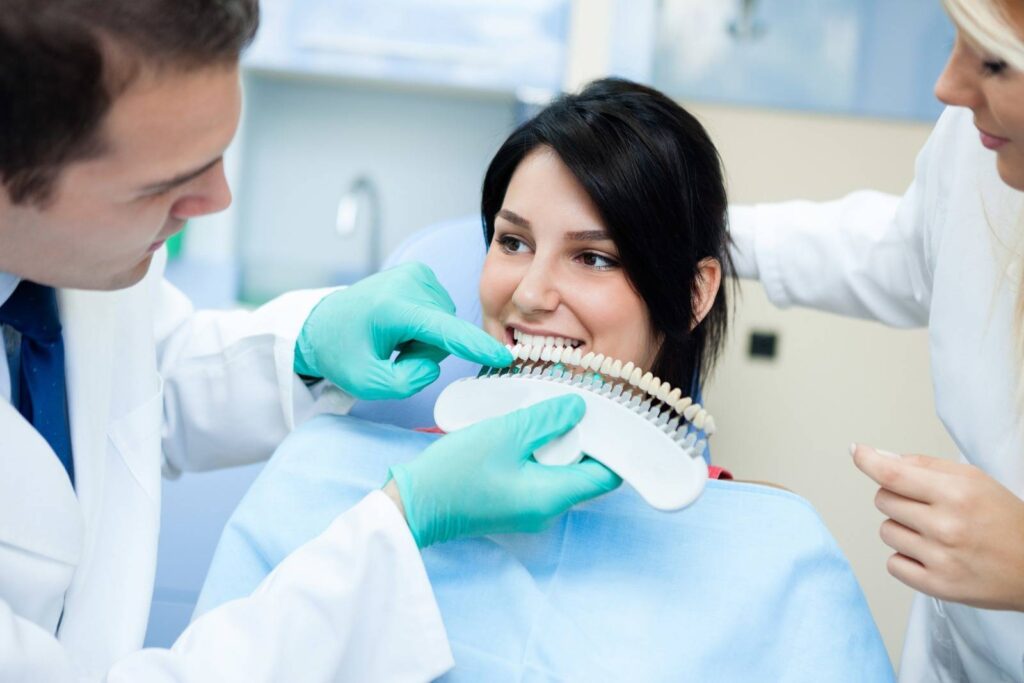Maintaining optimal dental health goes beyond regular brushing and flossing; it requires a proactive approach that includes comprehensive check-ups and preventive care plans. Comprehensive dental check-ups are essential for early detection and management of potential oral health issues before they escalate into more serious problems. These check-ups typically involve a thorough examination of the teeth, gums, and mouth, often supplemented with X-rays to identify hidden issues such as cavities, bone loss, or other structural problems. By identifying these concerns early, your dentist can recommend appropriate treatments or preventive measures to address them before they develop into more complex conditions. Preventive care is the cornerstone of maintaining long-term dental health. This includes professional cleanings, which remove plaque and tartar buildup that regular brushing might miss. Plaque, a sticky film of bacteria, can lead to gum disease and tooth decay if not properly managed. During a professional cleaning, dental hygienists use specialized tools to meticulously clean the teeth and provide a polishing that helps prevent future plaque accumulation.
 In addition, fluoride treatments can strengthen the enamel, making it more resistant to decay and erosion. Regular dental visits also offer the opportunity for personalized advice on oral hygiene practices tailored to your specific needs. Dentists can provide guidance on proper brushing techniques, recommend suitable toothbrushes and toothpaste, and offer dietary advice to help prevent issues such as tooth sensitivity or enamel erosion. For patients at higher risk of dental problems, such as those with a history of gum disease or a tendency to develop cavities, additional preventive measures may be suggested, including dental sealants, which act as a protective barrier against decay. Another critical aspect of preventive care is maintaining good oral hygiene habits at home. Regular brushing with fluoride toothpaste and daily flossing are fundamental practices that help remove food particles and plaque from between the teeth and along the gum line.
In addition, fluoride treatments can strengthen the enamel, making it more resistant to decay and erosion. Regular dental visits also offer the opportunity for personalized advice on oral hygiene practices tailored to your specific needs. Dentists can provide guidance on proper brushing techniques, recommend suitable toothbrushes and toothpaste, and offer dietary advice to help prevent issues such as tooth sensitivity or enamel erosion. For patients at higher risk of dental problems, such as those with a history of gum disease or a tendency to develop cavities, additional preventive measures may be suggested, including dental sealants, which act as a protective barrier against decay. Another critical aspect of preventive care is maintaining good oral hygiene habits at home. Regular brushing with fluoride toothpaste and daily flossing are fundamental practices that help remove food particles and plaque from between the teeth and along the gum line.
Using mouthwash can further assist in reducing bacteria and freshening breath. However, no matter how diligent you are with your at-home care, it cannot replace the importance of professional dental visits. A preventive care plan should be tailored to individual needs of Langley Dentist , taking into account factors such as age, overall health, and personal risk factors. For example, children and adolescents may benefit from orthodontic evaluations and fluoride treatments, while adults may need more frequent cleanings or additional periodontal care to manage gum health. Older adults might require attention to issues such as dry mouth or the effects of medications on oral health. Incorporating comprehensive check-ups and preventive care into your routine not only helps avoid dental issues but also contributes to your overall health. Poor oral health has been linked to various systemic conditions, including heart disease and diabetes. By prioritizing dental check-ups and preventive measures, you are investing in your overall well-being and ensuring that your smile remains bright and healthy for years to come.